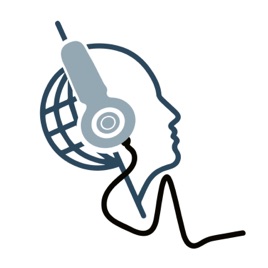
Advertise on podcast: OHBM Neurosalience
Rating
5 from
Country
This podcast has
77 episodes
Language
Publisher
Explicit
No
Date created
2021/03/05
Average duration
71 min.
Release period
20 days
Description
The Organization for Human Brain Mapping (OHBM) presents the Neurosalience podcast. In this series of interviews you’ll discover the latest developments in techniques for measuring brain structure and function. You’ll hear about how these tools can provide insight into the function of the brain from childhood to old age, and why these normal processes may be affected in neurological and psychiatric conditions. Dr. Peter Bandettini interviews brain scientists of all types and discusses the latest developments, controversies and challenges related to their work in the field of brain mapping.
Podcast episodes
Check latest episodes from OHBM Neurosalience podcast
Neurosalience #S4E10 with Nathan Spreng - Cognitive networks and how they vary with age and disease
2024/02/14
If you are interested in working with Nathan, he is currently recruiting for a postdoc! Send your CV to lbc.spreng@gmail.com
Today our guest is Nathan Spreng. Dr. Spreng is the James McGill Professor of Neurology and Neurosurgery and Director of the Laboratory of Brain and Cognition at the Montreal Neurological Institute and Hospital at McGill University.
As an undergraduate, Dr. Spreng was initially interested in pursuing a major in poetry until he took a psychology class that sparked his interest in the brain. He received Ph.D. in 2008 from the University of Toronto in Brian Levine's lab, and post docs with Cheryl Grady at the University of Toronto and Dan Schacter at Harvard. After about 5 years as an assistant professor at Cornell University, he moved to McGill University.
Throughout his career Dr. Spreng has been using fMRI to reveal subtle yet repeatable large-scale brain networks as they relate attention, memory, cognitive control, and social cognition. He has also helped to elucidate the central role that the default network plays in self-generated thought, and in how it dynamically interacts with multiple systems in the brain.
In this episode Peter and Nathan have a far reaching conversation about his work and what it implies, covering his study of age dependence of resting state hippocampal-linked network ensembles, how to move from mapping networks to modeling and understanding mechanisms, the many possible clinical implications of his work, current understanding of Alzheimer's disease, our mutual appreciation for multi-echo EPI, his data release paper of a large multi-echo EPI and structural MRI data set, and much more.
Enjoy listening!
Episode producers:
Alfie Wearn
Omer Faruk Gulban
more
Neurosalience #S4E9 with Marsel Mesulam - 50+ years of brain research and importance of bubbles
2024/01/31
It is our great pleasure and deep honor to host Dr. Marsel Mesulam who is a giant in the field of Neurology and one of founders of OHBM. Dr. Mesulam is Chief of Behavioral Neurology and the Ruth Dunbar Davee Professor of Neuroscience at Northwestern University Feinberg School of
Medicine, and Professor of Behavioral Neurology at the Weinberg College of Arts and Sciences.Dr. Mesulam received his MD from Harvard Medical School in 1972, and in 1976 completed residencies at Boston City Hospital and Beth Israel Deaconess Medical Center in Boston. After a
1 year postdoc at Harvard University he began his tenure in Chicago at Northwestern. Dr. Mesulam's work has been both prodigious and impactful over the years, as his almost 1000 papers have been cited over 140 thousand times. He has written the seminal book, Principles of Behavioral and Cognitive Neurology, and has produced many landmark papers - a few of which we'll discuss in the podcast. One paper that we consider a masterpiece was published in Brain in 1998 and titled From
Sensation to Cognition. This can be considered as a required reading for everyone in the field of brain mapping as it lays out so concisely and eloquently, a breathtaking perspective of the structure and functional organization of the human brain.
Dr. Mesulam's research is extremely broad and diverse, having impacted such areas as neural networks and functional imaging, Dementia, Alzheimer's Disease, Primary Progressive Aphasia (PPA), Cholinergic Pathways, Acetylcholinesterase Studies, Cognitive Psychology, Neurology,
and Neuropsychiatry. He also developed, early in his career, a neuronal marker, Tetramethyl benzidine, that profoundly impacted research in this area.
In this inspiring conversation, Peter and Marsel discuss his early career and what was important for his success, delve into research culture and the value of opportunistic research, and the value of having the freedom and resources to try many things and rapidly change directions that follow interesting leads. They also discuss some of the exciting early days of Neuroimaging and OHBM. Lastly, we go into some of his current research on Primary Progressive Aphasia (PPA) and the study
of temporal pole disease as a window to temporal pole functional significance.
We hope that you enjoy this conversation.
Episode producers:Alfie WearnOmer Faruk Gulban
more
Neurosalience #S4E8 with Monica Rosenberg - It’s a good idea to pay attention to Dr. Rosenberg
2024/01/17
Dr. Rosenberg received her Ph.D. from the department of Psychology at Yale University, where she also carried out her post doc. In 2019, she started as an assistant professor in the Department of Psychology at the University of Chicago and is a member of the Chicago Neuroscience Institute. She has been pioneering the use of connectome-based predictive modeling to capture individual differences in the ability to sustain attention. Attention is fundamental to just about everything that we experience and do and how we navigate the world. It varies over time and each person has different abilities to maintain it. Monica has developed and used extensively a task known as gradCPT, an easy at first but hard to sustain, continuous attention task that allows moment to moment assessment of sustained attention. She has found two networks that characterize high attention vs lower attention, and these have been powerful for characterizing individuals ability to sustain attention. It's also been useful for characterizing differences in such attention-related skills such as reading comprehension. She's been delving further into both fMRI methodology and the nuances of attention ever since.
In this conversation we talk about her career development, the great environment at Yale, the development of her exciting and impactful fMRI-based human attention research. We hope you enjoy the conversation!
Episode producers:
Omer Faruk Gulban
more
Neurosalience #S4E7 with Evan Gordon - Deep Sampling of fMRI Data: This is the way
2024/01/05
Today, we are excited to have Dr. Evan Gordon on the podcast. Evan is an assistant professor in the Neuroimaging Labs Research Center, based in the Mallinckrodt Institute of Radiology at the Washington University School of Medicine in St. Louis. Since joining the group and joining forces with what is known as the "midnight scan club," he has gone on a scientific tear, publishing several highly influential papers that make use of the unique high-fidelity data sets, containing up to 11 hours of resting state or task-activated fMRI data for each subject. This powerful approach in fMRI is known as "deep sampling." His findings include insights into unique individual connectivity patterns, the whole brain use of a novel parcellation approach using boundary maps, and most recently, discovery of effector-specific regions in motor cortex - a finding which is likely to replace in textbooks the classic Penfield maps of the homunculus.
This was a wonderful conversation where we explored the implementation, benefits, and potential of deep sampling of fMRI data! Evan is not only a creative and productive scientist, but a great conversationalist. We hope you enjoy it!
Episode producers:
Omer Faruk Gulban
Alfie Wearn
more
Neurosalience #S4E6 with Shella Keilholz - Ubiquitous quasi-periodic patterns in resting state fMRI
2023/12/20
Today, our guest is Shella Keilholz. Dr. Keilholz received her Bachelor's in Physics from Missouri University of Science and Technology in 1997, and her PhD in Engineering Physics from the University of Virginia in 2004. She went on to a do a post-doc at NIH in Dr. Alan Koretsky's lab and in 2004 joined the department of Biomedical Engineering at Emory University as a faculty member. She is now a full professor at Emory University and also closely affiliated with Georgia Tech.
Since around 2008 she has been uncovering new spatial and temporal patterns in resting state fMRI. She was the first to identify spatial propagation of wave-like behavior in the resting state time series and in 2011 coined the term quasi-periodic patterns (QPP) to describe whole brain networks that dominate much of the resting state signal. Recently, she and others have described three such patterns that account for most of the variance. Here we not only talk about her career but also delve into how these quasi-periodic patterns mesh with the current landscape of diverse features of resting state fMRI that continue to be found. She has shown that these patterns may have a central driver and may relate to such things as vasomotion, global signal, arousal state, and attention. In general, there is much more information from basic neurophysiology to cognition that remains to be derived from resting state fMRI, and Shella is among those leading the effort.
This was an incredibly stimulating and fun discission. We hope you enjoy it!
Episode producers:Omer Faruk Gulban
Jeff Mentch
more
Neurosalience #S4E5 with Alex Huth - Naturalistic stimuli, voxelwise modeling, and semantic maps
2023/12/06
Today, we’re excited to have Alex Huth on the podcast. Alex is one of the more creative and insightful people in the field of brain imaging today as he has been forging new ground using naturalistic stimuli and voxelwise models to create intricate maps of semantic features across large swaths of the brain. His seminal 2016 paper in Nature brought his approach to prominence: https://www.nature.com/articles/nature17637
Here, Alex shares insights on the value of naturalistic stimuli on fMRI research and updates us on our current capabilities to decode brain activity. During this conversation Alex highlights an amazing tool to view semantic maps in the brain, which can be found here: https://gallantlab.org/viewer-huth-2016/
Alex received his bachelor’s in engineering and applied science from Cal Tec, where he was also working as an undergraduate researcher in Christoff Koch's lab. He continued on, receiving his Ph.D. in 2013 from University of California Berkeley, Helen Wills Neuroscience Institute, under the guidance of Dr.'s Christof Koch and Jack Gallant. He went on to do his post doc in the Gallant lab and finally moved to the University of Austin in 2017, where he is an assistant professor in computer science and neuroscience: https://www.cs.utexas.edu/~huth/
more
Neurosalience #S4E4 with Andrew Jahn - Educating the neuroimaging world with Andy's Brain Book
2023/11/22
Today, our guest is Dr. Andrew Jahn.
Those of you learning MRI and fMRI analysis - which realistically, should be pretty much all of us - may already know about the amazing resources that he is prodigiously producing online. Starting with "Andy's Brain Blog" in 2012, expanding to videos (over 300 of them), and now his current project, "Andy's Brain Book", Dr. Jahn has been steadily creating a standard and a go-to resource for all of us to learn the nuts and bolts as well as concepts and nuances of processing our data.
Dr. Jahn received his Bachelors in Psychology in 2008 from Carleton College, and his Ph.D. in Cognitive Neuroscience at Indiana University in 2015. He did a postdoc at the Haskins Laboratories at Yale University, and is now a professor at the University of Michigan, in Ann Arbor. There he has been given the freedom to expand his extremely valuable teaching resources.
In this podcast we discuss how he got started in this, how perhaps failing to get a post-undergraduate position at the NIH started him down this path. We discuss the educational resources that he has been producing, and how he draws upon luminaries from Jaque Barzun to Dave Berry for inspiration. We also discuss the wider issue of education in neuroimaging - what can be taught and what cannot and have an open-ended conversation on the future of neuroimaging as well as some of his own planned future projects.
This was a truly fun and enlightening discussion! We hope you enjoy it!
Episode producers:
Alfie Wearn
Omer Faruk Gulban
Brain Art
Artist: Laura Bundesen
Title: Colors of hope
more
Neurosalience #S4E3 with Russ Poldrack - Paradigm shifts and big picture challenges in fMRI
2023/11/08
In this episode our guest is Dr. Russ Poldrack who has been so influential to the fields of fMRI, cognitive neuroscience, and brain imaging in general for the past 30+ years. Russ is the Albert Ray Lang Professor of Psychology at Stanford University and Director of the Center for Open and Reproducible Science. Over the years, he has helped elevate how we do fMRI by creating resources and standards for sharing data and code. He is also working to advance the precision with which we think about task design and data interpretation through his Cognitive Atlas project, which is a knowledge base for cognitive neuroscience.
Russ Poldrack received his Bachelors in Psychology from Baylor University in 1989, and his Ph.D. from the University of Illinois, Urbana/Champaign in 1995. After a postdoc at Stanford, he started, in 1999, as an assistant professor at Harvard University and Mass General Hospital, in 2002 he moved to UCLA, then in 2009, he became the director of the imaging research center at the University of Texas at Austin. Finally, in 2014 he was recruited to Stanford, where he has been ever since.
In this discussion, Peter and Russ look back into some of the paradigm shifts in fMRI best practices that Russ helped foster, as well as some of the big picture challenges that we face when using brain imaging, modeling, and precision task design to derive new insights into brain organization and mechanisms of computation. Here, Russ also weighs in on the prospects of fMRI for biomarker derivation and the exciting potential for single subject deep imaging.
Peter mentioned to Russ that this was one of the fastest hours he has experienced in quite some time as it was an engrossing discussion.
Enjoy listening!
Episode producers
Jeff Mentch
Omer Faruk Gulban
Brain Art
Artist: Mia Coutinho
Title: Represent, Connect, Empower
more
Neurosalience #S4E2 - OHBM 2023 live podcast session
2023/10/25
Organization for Human Brain Mapping (OHBM) 2023 live podcast session hosted by Alfie Wearn on site during the conference.
In this episode, our guests Ana Luísa Pinho, Enrico Amico, Tim Laumann, and Emily Finn discuss mapping individual differences in the human brain.
Enjoy listening!
Episode producers:
Alfie Wearn
Omer Faruk Gulban
Jeff Mentch
more
Neurosalience #S4E1 - Highlights of Season 3, DIANA news, and future plans
2023/10/11
A brand new season of Neurosalience! This year production of podcast will be in the safe hands of Ömer Faruk Gülban.
Here, Faruk turns the microphone around onto our trusty host, Peter
Bandettini, to talk about all Peter’s favorite moments of last season, some interesting updates about the ‘DIANA’ paper (discussed in Season 3 Episode 4), and future plans for your favorite brain mapping podcast.
Enjoy Season 4!
more
Neurosalience #S3E20 with Michel Thiebaut de Schotten - Brain Connectivity and Disconnectivity
2023/07/26
In the final episode of Season 3 of Neurosalience, Peter chats with Michele Thiebaut de Shotten. Michele is a full professor at the French National Center for Scientific Research in Paris where he heads the Brain Connectivity and Behavior Lab and the Neurofunctional Imaging Group. On top of all this he is Editor in Chief of the journal Brain Structure and Function and, this year, has been the President of the Organization for Human Brain Mapping.
Having over 15 years of experience in neuropsychology and brain connectivity neuroimaging, he has established himself as a leader in the field with work that spans everything including development, evolution, methodology, and theory. He has been a pioneer in probing brain connectivity and disconnectivity, starting in 2005 with a paper published in science showing that spatial neglect is a consequence of the disruption of communication between the frontal and the parietal lobes, and thus should be considered as a disconnection syndrome. Since then, he has been a highly prolific producer of creative, insightful, and high impact work exploring and characterizing structural and functional brain connectivity.
Here we talk about the development of his career and his ideas as well as the importance of thinking of the brain from a connectivity perspective. We delve into some of his recent papers, including one that highlights differences in various MRI methods to measure myelin, and finally, we discuss how OHBM has evolved along with the role of the president of OHBM, as well as a few things that the meeting has in store for this year.
Episode producers:
Omer Faruk Gulban
Alfie Wearn
Please send any feedback, guest suggestions, or ideas to ohbm.comcom@gmail.com
Thank you for listening to this season of Neurosalience! We'll be back in a few months time with Season 4!
more
What’s on at OHBM 2023: SIG and Committee Events
2023/07/17
The 2023 OHBM Annual Meeting is fast approaching! In addition to the fantastic scientific content organized by the Program Committee, many other committees and special interest groups (SIGs) host their own programs. At last year’s Annual Meeting in Glasgow, committees and SIGs hosted events on inclusivity, mentorship, art, and much more.
In this podcast, Peter and Alfie highlight upcoming committee and SIG events at OHBM 2023.
Further information on all these events, including exact times and places, can be found in this accompanying blog post:
Other useful links:
SIGs
1. BrainArt:
https://ohbm-brainart.github.io/
2. Open Science:
https://ossig.netlify.app/
3. Student and Postdoc:
https://www.ohbmtrainees.com/
4. Sustainability and Environmental Action:
https://ohbm-environment.org/
5. Women in OHBM:
https://www.ohbmbrainmappingblog.com/blog/announcing-the-launch-of-the-women-in-ohbm-special-interest-group recent
blog post
COMMITTEES
1. Diversity and Inclusion:
Kid's live review: https://ohbm-dic.github.io/kidsreview/2023/
2. Education:
https://www.humanbrainmapping.org/i4a/pages/index.cfm?pageid=4204
3. Communications (ComCom):
https://www.ohbmbrainmappingblog.com/
Episode producers:
Alfie Wearn
Stephania Assimopoulos
Please send any feedback, guest suggestions, or ideas to
ohbm.comcom@gmail.com
more
Podcast sponsorship advertising
Start advertising on OHBM Neurosalience & sponsor relevant audience podcasts
You may also like these life sciences Podcasts
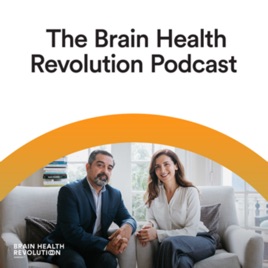
4.9
548
81
The Brain Health Revolution Podcast
Sherzai M.D.
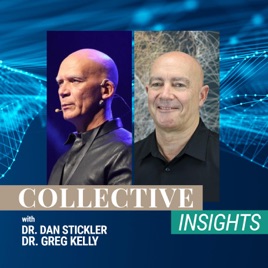
4.8
492
210
Collective Insights
Neurohacker Collective
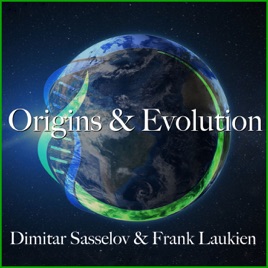
4.8
21
9
Origins & Evolution
Origins

4.4
876
50
Intelligent Design the Future
Discovery Institute

4.6
534
1025
The Naked Scientists Podcast
The Naked Scientists
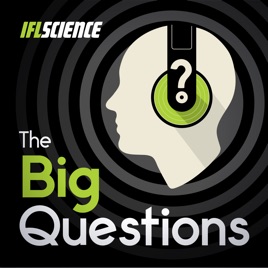
3.8
16
28
IFLScience - The Big Questions
IFLScience
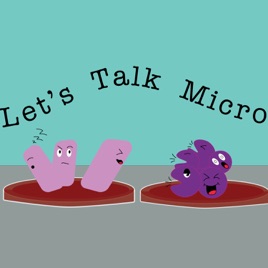
5
23
132
Let's Talk Micro
Luis Plaza
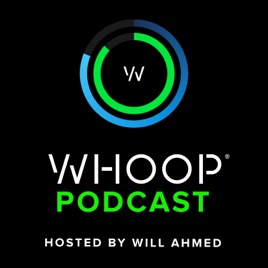
4.7
584
260
WHOOP Podcast
WHOOP
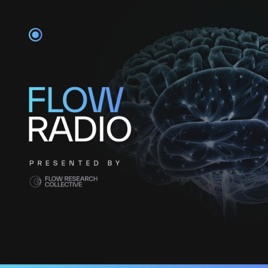
4.7
159
105
Flow Radio
Flow Research Collective
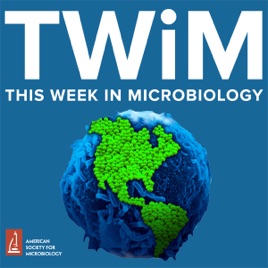
4.8
492
305
This Week in Microbiology
Vincent Racaniello



